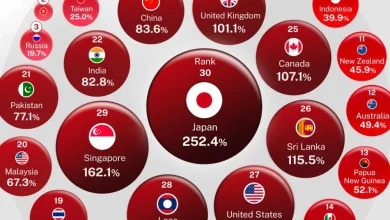Why Investing in Education is Key for Future Success

Future prosperity depends on investing in education because it gives people the information, skills, and critical thinking talents they need to prosper in a world that is becoming more complicated and competitive. Education lays the groundwork for problem-solving, innovation, and change adaptation as industries and technology develop.
Societies can alleviate inequality, develop a more competent labor force, and establish a sustainable future by placing a high priority on education. In addition to empowering individuals, education also builds stronger communities and advances national development.
1. Top Reasons Why Education is an Investment
1. Higher Income Potential
One of the primary reasons why education is considered an investment is its direct link to increased earning potential. Statistically, individuals with higher levels of education tend to earn more over their lifetime than those with less formal schooling. A well-educated workforce attracts employers looking for skilled labor, leading to higher wages and better job opportunities. Whether it’s a bachelor’s degree or a professional certification, the more education you have, the greater your earning power becomes.
2. Job Stability and Security
Education plays a key role in job stability. People with higher levels of education are less likely to face unemployment during economic downturns. Skilled workers are in demand, and their expertise makes them indispensable to companies. Moreover, education equips individuals with versatile skills that can be applied across different industries, further enhancing job security. In contrast, those with limited education may struggle more to find stable employment.
3. Individual Growth
As the saying goes, “to invest in education is to invest for a better you.” To put it another way, investing in education is always a wise choice and has a significant impact on your personal development. Education has long aided individuals in applying pertinent knowledge to solve and negotiate a variety of challenging issues. It is reasonable to consider education an investment that will help you understand the value of personal growth and improve your skill set. After that, you can unleash your inner strength and self-assurance. You may become a better communicator, decision-maker, and problem-solver by educating yourself.
4. Increased Job Security
Job security and employee layoffs have grown to be extremely delicate topics in the labor market in recent years. But since it might result in avoiding such situations and receiving excellent training, investing in education can be a beneficial thing. Employers today typically reduce their workforce and seek out highly qualified candidates for open positions. In these circumstances, investing in education can serve as a safety net. Furthermore, because of their extensive skill set, in-depth knowledge, and specialized knowledge, individuals who view education as an investment can easily weather unanticipated shifts in the labor market. This flexibility is seen as a great benefit and can assist you in preserving stability in unpredictable times.

2. Why Is Education Investment Important?
Because education equips people with the skills, information, and abilities necessary to thrive in a competitive and changing global economy, it is imperative that we invest in it.
Over time, it increases earning potential, promotes personal development, and provides access to greater employment prospects. Additionally, because education gives people from all backgrounds the opportunity to raise their socioeconomic standing, it is essential in tackling social inequality.
Countries benefit from increased labor strength, innovation, and economic stability when they invest in education. An educated populace is essential for maintaining growth, increasing production, and resolving difficult problems in today’s technologically advanced society. Thus, education serves as a catalyst for the advancement of society as a whole as well as a personal advantage.
3. What are the benefits of education?
Better Career Opportunities: Education provides access to more favorable employment opportunities. Promotions, higher-paying positions, and greater work security might result from specialized training or higher education.
Greater Earning Potential: People with higher levels of education typically make more money overall than people with less formal education. Because of this, education can be a very effective way to increase financial security.
Personal Development and Growth: By strengthening abilities like critical thinking, problem-solving, and decision-making, education fosters personal development. Additionally, it aids in the development of communication skills, self-esteem, and confidence.
Improved Health Outcomes: Research indicates that those with higher levels of education are more likely to live longer, adopt healthier lifestyles, and have access to healthcare. Making educated judgments about one’s health is another benefit of education.
Social and Cultural Benefits: By introducing people to a variety of cultures, viewpoints, and ideas, education promotes empathy and understanding. A more inclusive society results from the reduction of prejudice and promotion of social solidarity.
Poverty Reduction: Education aids in ending the poverty cycle. Education helps families improve their financial status by giving people the information and abilities they need to find higher-paying professions.
Conclusion:
In conclusion, spending money on education is important for societal and economic advancement in addition to personal development. Education gives people the skills they need to succeed in the long run, adapt to change, and encourage creativity. An educated workforce is crucial for meeting future difficulties and maintaining growth as industries and technology continue to change. By making educational investments now, we enable future generations to make significant economic contributions, lessen inequality, and create a more prosperous society for everybody. Unquestionably, one of the most effective investments for ensuring a better future is education.
FAQs:
1. How does investing in education impact economic growth?
Investing in education drives economic growth by developing a skilled workforce capable of supporting innovation, improving productivity, and attracting investment. Countries with a higher percentage of educated individuals typically experience higher economic performance, as educated populations contribute to more competitive and diversified economies
2. What role does education play in personal success?
From a personal perspective, investing in education leads to better career progression chances, better employment stability, and higher-paying positions. Additionally, it improves critical thinking, problem-solving, and general life skills—all of which are necessary for success in the cutthroat job market of today.
3. Why is education considered a long-term investment?
Even while the advantages of education are not always immediately noticeable, there is no denying its long-term worth. Higher income potential, career promotion, and increased work security are the usual lifetime returns on educational investment. Additionally, education prepares people to deal with evolving technologies and industries.
4. How does education prepare individuals for future challenges?
Education fosters the skills needed to adapt to rapidly changing global challenges, such as technological advancements, climate change, and geopolitical shifts. By prioritizing education, individuals and societies become better equipped to innovate, solve problems, and meet future demands.



